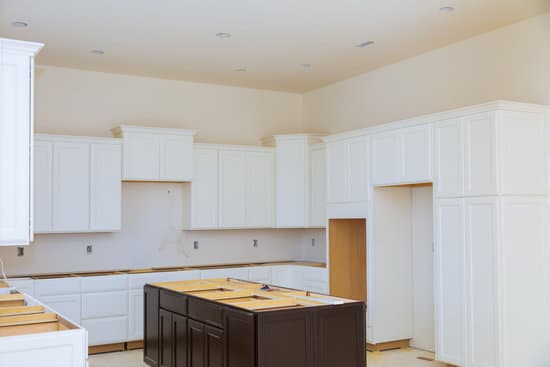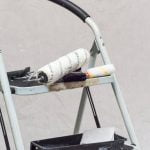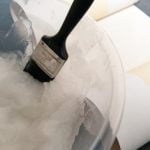Security deposits are a common requirement when renting a property, serving as a form of protection for landlords against potential damages or unpaid rent. However, can landlords keep your security deposit for home improvements? This question delves into the nuances of lease agreements and legal regulations that govern the handling of security deposits. As a tenant, it is crucial to understand your rights in these matters to ensure fair treatment during the rental process.
When signing a lease agreement, tenants should pay close attention to clauses related to security deposits and home improvements. These provisions outline what enhancements landlords may deduct from your security deposit upon moving out. It is essential to clarify any terms or conditions with your landlord to avoid misunderstandings and potential disputes down the line.
Legal regulations regarding security deposits vary by state, adding another layer of complexity to the issue. Tenants should familiarize themselves with the specific laws governing security deposits in their area to assert their rights effectively. By understanding the legal framework surrounding this aspect of renting, tenants can protect themselves from unjust deductions and disputes over home improvements made by landlords.
Understanding Your Lease Agreement
When signing a lease agreement, it is crucial for tenants to understand the terms and conditions related to security deposits. This includes knowing what the landlord can deduct from the security deposit, especially when it comes to home improvements. Here are some key points to consider in your lease agreement:
- Check if there is a specific clause addressing deductions for home improvements. Some landlords may specify certain types of improvements that can be deducted from the security deposit, such as repairing structural damage or replacing appliances.
- Look for details on how damages are assessed and documented. It is important to know what condition the rental property should be in when you move out in order to avoid disputes over deductions for home improvements.
- Understand any timelines or requirements for notifying the landlord about damages or necessary repairs. Failure to report damages promptly could affect your ability to dispute deductions from your security deposit.
By familiarizing yourself with your lease agreement and its provisions on security deposits and home improvements, you can protect yourself as a tenant and ensure that you are aware of your rights and responsibilities. Remember that communication with your landlord is key, so if you have any questions or concerns about deductions from your security deposit, it is important to address them promptly.
In some cases, landlords may try to keep a tenant’s security deposit for home improvements that were not necessary or excessive. It is essential for tenants to be aware of their rights under state laws regarding security deposits and what landlords can legally deduct from them. Being informed about these regulations can help tenants navigate any disputes that may arise over deductions for home improvements.
Legal Regulations
When it comes to security deposits and home improvements, tenants should be aware of the legal regulations that exist to protect their rights. Each state may have different laws in place regarding how landlords can use security deposits and what responsibilities they have when it comes to making home improvements. It is crucial for tenants to understand these laws to ensure they are being treated fairly by their landlord.
State-Specific Laws on Security Deposits
In some states, landlords are allowed to use a tenant’s security deposit for necessary repairs and maintenance of the rental property. However, there are often limitations on what exactly constitutes a necessary repair or improvement that can be deducted from the security deposit. Tenants should familiarize themselves with the specific laws in their state to understand what their landlord can and cannot deduct from their security deposit for home improvements.
Landlord Responsibilities Regarding Home Improvements
Many states require landlords to maintain the rental property in a habitable condition, which means they are responsible for making necessary repairs and improvements over time. However, determining what qualifies as a necessary improvement versus an optional upgrade can sometimes be a point of contention between landlords and tenants.
Understanding your rights as a tenant in terms of home improvements outlined in your lease agreement is crucial to ensure you are not taken advantage of when it comes to your security deposit.
Necessary Home Improvements
When renting a property, tenants often provide security deposits to ensure that any potential damages or unpaid rent can be covered by the landlord. However, there may be confusion regarding what landlords can deduct from these security deposits, especially when it comes to home improvements. It is essential for tenants to understand their rights and obligations regarding security deposits and the conditions under which landlords can use them for necessary repairs or improvements.
Here are some important points to consider when it comes to necessary home improvements that landlords can deduct from your security deposit:
- Normal wear and tear: Landlords typically cannot deduct from your security deposit for regular wear and tear on the property, such as faded paint or worn carpets.
- Damage caused by tenants: If you, as a tenant, have caused damage beyond normal wear and tear, such as holes in the walls or broken fixtures, landlords can use your security deposit funds to cover the cost of repairs.
- Mandatory maintenance: In some cases, landlords may need to conduct mandatory maintenance or repairs to ensure the safety and habitability of the rental property. These necessary home improvements can also be deducted from your security deposit.
It is crucial for tenants to carefully review their lease agreements to understand the specific terms related to security deposits and deductions for home improvements. By documenting the condition of the rental property before moving in and after moving out, tenants can protect themselves in case of disputes with landlords over deductions from their security deposits. Taking proactive steps can help alleviate confusion and prevent potential conflicts when it comes time to move out of a rental property.
Documenting Damages
Security deposits serve as a form of financial protection for landlords in case of damages or unpaid rent by tenants. However, there can be instances where landlords try to retain the security deposit unfairly for home improvements. It is essential for tenants to understand their rights and obligations regarding security deposits to prevent any disputes at the end of their lease.
When entering into a lease agreement, it is crucial to carefully review the terms regarding security deposits and any provisions related to home improvements. Some leases may specify which types of damages or repairs are considered normal wear and tear versus tenant responsibilities. Understanding these clauses can help tenants navigate potential disputes when it comes to returning the security deposit.
To protect yourself as a tenant, it is advisable to document the condition of the rental property before moving in and after moving out. Take photos or videos of any pre-existing damages or issues upon move-in, and make sure to note them down in writing as well. This will serve as evidence in case your landlord tries to withhold your security deposit for damages that you did not cause during your tenancy.
| Key Point | Explanation |
|---|---|
| Documenting Condition | Take photos/videos before moving in/out |
| Written Notes | Note down any damages in writing |
Disputes and Resolutions
Request an Itemized List of Deductions
If you find yourself in a situation where you disagree with your landlord about deductions from your security deposit, the first step is to request an itemized list of these deductions. By law, landlords are required to provide tenants with a detailed breakdown of why certain amounts were withheld from the security deposit. This will help you understand the reasoning behind the deductions and assess whether they are valid.
Review Your Lease Agreement
Before escalating the dispute further, carefully review your lease agreement to understand what it states about security deposits and home improvements. Pay close attention to any clauses related to the return of the security deposit and whether there are specific guidelines regarding deductions for damages or necessary repairs. Understanding your rights as outlined in the lease agreement can help you determine if the landlord’s actions are justified.
Seek Legal Advice or Mediation
If discussions with your landlord do not lead to a resolution and you believe that your rights as a tenant have been violated, consider seeking legal advice or mediation. There are organizations and professionals specializing in landlord-tenant disputes who can provide guidance on how to proceed.
Legal intervention
Case Studies
When it comes to security deposits and home improvements, tenants may sometimes find themselves in tricky situations with their landlords. One common question that arises is whether landlords can keep your security deposit for home improvements made to the rental property. Understanding your lease agreement is crucial in determining what the landlord can deduct from your security deposit when it comes to home improvements.
In many cases, landlords are allowed to use the security deposit for repairs or damages beyond normal wear and tear. This could include necessary home improvements that are essential for maintaining the property’s livability and safety. However, it is important to note that each state has its own laws regarding security deposits and landlord responsibilities. Some states have specific regulations on what constitutes acceptable deductions from a tenant’s security deposit.
To protect yourself as a tenant, it is essential to document the condition of the rental property before moving in and after moving out. Taking photos and keeping records of any existing damages can help prevent disputes with your landlord when it comes time to return the security deposit. If you do find yourself in a disagreement with your landlord about deductions from your security deposit for home improvements, there are steps you can take to resolve the issue amicably.
| Tenant Protections | Security Deposit Deductions |
|---|---|
| Taking photos before moving in and after moving out | Necessary home improvements for livability |
| Reviewing lease agreement for clarity on deductions | Repairs beyond normal wear and tear |
| Understanding state laws on security deposits | Documenting damages properly |
Conclusion
In conclusion, it is crucial for tenants to understand their rights and responsibilities when it comes to security deposits and home improvements. While security deposits serve as a form of protection for landlords against potential damages caused by tenants, they should not be used as a means for landlords to fund general maintenance or home improvements. Landlords are typically only allowed to deduct from the security deposit for damages beyond normal wear and tear.
It is important for tenants to carefully review their lease agreements to understand what can be deducted from their security deposit. Some states have specific laws outlining the obligations of landlords when it comes to security deposits, so tenants should familiarize themselves with these regulations to protect their rights. Knowing what improvements landlords can deduct from your security deposit can help you prevent unfair deductions.
In cases where disputes arise regarding deductions from the security deposit for home improvements, tenants should take proactive steps to document the condition of the rental property before moving in and after moving out. This documentation can serve as evidence in case disagreements with the landlord occur. By being informed about legal regulations, understanding lease agreements, and diligently documenting damages, tenants can better protect themselves from unjustified deductions from their security deposit related to home improvements.
Frequently Asked Questions
What Can Landlord Deduct From Security Deposit Colorado?
Landlords in Colorado can deduct from a security deposit for unpaid rent, damages beyond normal wear and tear, cleaning fees to restore the unit to its original condition, and costs for early lease termination. However, they must provide an itemized list of deductions within 60 days of the lease end.
What Is the Security Deposit Law in New Jersey?
In New Jersey, security deposit law requires landlords to place tenants’ deposits in interest-bearing accounts and return them within 30 days of lease termination. Deductions are allowed for unpaid rent, damages beyond normal wear and tear, and legal fees if specified in the lease agreement.
What Is the Law on Security Deposits in California?
The law on security deposits in California mandates that landlords can deduct from the deposit for unpaid rent, cleaning costs, damages beyond normal wear and tear, and restoring the premises to their original condition. They must provide an itemized statement of deductions within 21 days after lease termination.

I’m thrilled to have you here as a part of the Remodeling Top community. This is where my journey as an architect and remodeling enthusiast intersects with your passion for transforming houses into dream homes.





